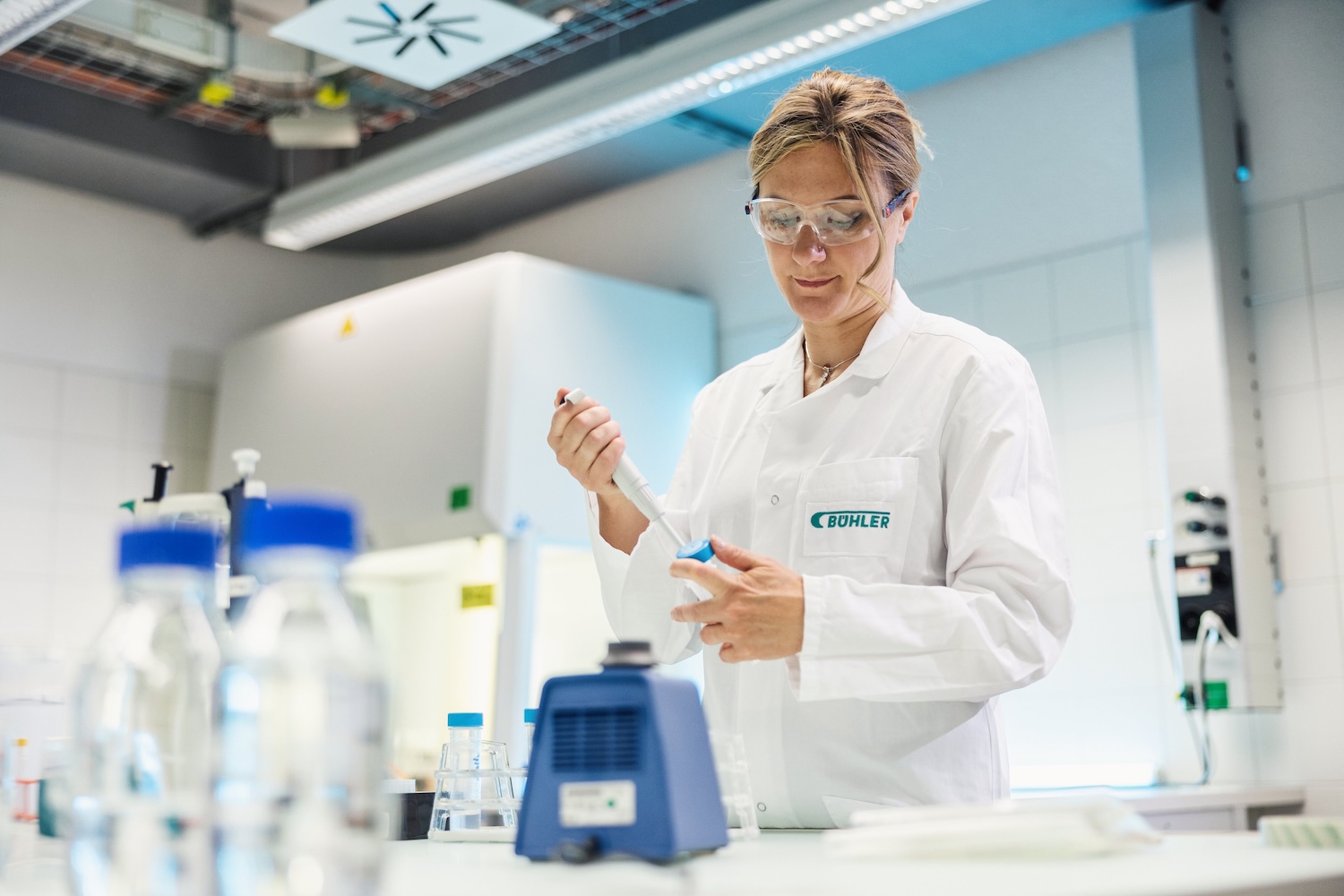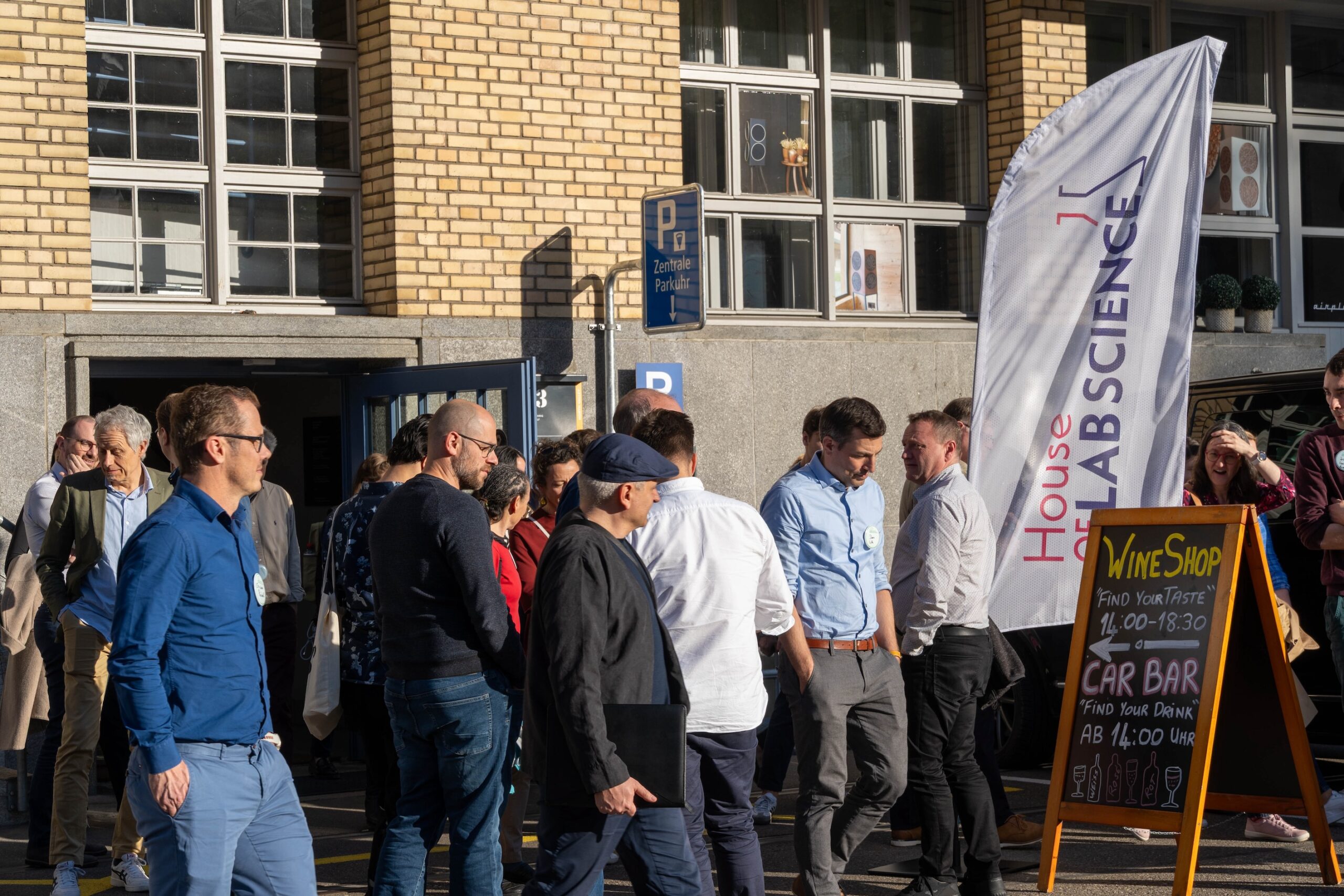Well designed and well implemented packaging solutions have a crucial role to play in shaping more sustainable food systems. From reducing food loss and waste to ensuring that 10 billion people have access to safe and nutritious food, how we transport and store our food and drinks is more important than ever.
Accordingly, innovators across Switzerland, and Europe more broadly, are busy scaling up sustainable packaging alternatives and rethinking reuse and recycling to make our food last longer. At our Impact Forum: Sustainable Packaging on 08 May 2025, we invited three expert speakers to discuss the field as it stands with Valley CEO Christina Senn-Jakobsen. Here’s what we learned…
Key Takeaways
- Legislation is changing: New European packaging legislation (PPWR) came into force earlier this year, but the panel agreed it appears to be creating more confusion than clarity in many areas.
- There is room for improvement: The panel agreed on the need for better consumer education and effective recycling systems. Packaging regulations are complex and there is a need for clear, factual communication to consumers.
- Paperisation continues to be a big trend: Paperization is a growing trend in the packaging industry, with manufacturers seeking to improve recyclability by introducing components made of renewable, fibre-based materials. However, our speakers also addressed the challenges of this and how reducing fossil-based plastic can be equally important.
- Cooperation across the value chain is needed to achieve circularity: The value of partnerships with local communities, governments, and competitors to grow the reusable packaging market cannot be underestimated. Extended producer responsibility schemes to drive circular economy improvements are also important.
- Greater investment is required to meet the needs of a growing population: We need more investment related to sustainable packaging, and this is requested by our customers, the food and beverage brands, but also by consumers and the society.
- Growing awareness on multiple fronts: Understanding of sustainability and regulatory changes are driving shifts in consumer demand and behaviour.Consumer awareness is becoming more sophisticated, too, with the public more engaged with the benefits of reuse vs recycling and the carbon footprint of different packaging.
Packaging as a holistic system
Insights from Ann Lorentzon, Project Leader, RISE Research Institutes of Sweden
Ann highlighted the complexities of sustainable packaging, noting the mismatch between environmental and recycling concerns. When companies approach RISE asking what constitutes a sustainable packaging, Ann shared that even after all the classic sustainable markers have been met, there are still issues that can arise. For example, replacing plastic with paper to create climate-smart packaging can create recycling issues, while removing laminates to simplify the recycling process can lead to increased food waste. Ann emphasised how crucial it is to be aware of this dilemma when trying to make a sustainment packaging.
With this in mind, Ann explained that there was hope that the new European packaging legislation (PPWR) would provide more clear direction. Unfortunately, in Ann’s view, it has increased confusion due to the 10 different requirement areas, which all come into effect at different times.
Ann also stressed that in all this discussion about what constitutes sustainable packaging, it’s vital to remember why we use the packaging. Packaging needs to meet various functions in the process from production to consumption, and in this, product protection is the most critical function to reduce environmental footprint. Both under packing and over packing lead to increased environmental consequences. Over packing can use too many resources, adds unnecessary weight and volumes and can lead to secondary problems such as higher transport emissions. But under packing can equally lead to much faster negative environmental impact because it results in product damage and waste of both product and the packaging. The goal, Ann explained, is to achieve an optimum packaging design which minimizes resource use and environmental impact for the entire system. She summarised that, in her view, sustainable packaging with a minimised environmental footprint must consider the whole system holistically: the product, the distribution and the packaging.
New developments in design and materials
Insights from Davide Braghiroli, Director of Sustainability & Packaging Regulation, Tetra Pak
Companies like Tetra Pak are always evolving, Davide explained, and now is no different – the beverage industry is transforming. More and more products are needed to meet the demands of the 8 billion people on Earth. In conjunction with this, consumers are becoming more sophisticated in their understanding of sustainable packaging and demanding better alternatives.
Davide outlined Tetra Pak’s efforts to reduce climate change, introduce circularity, and develop new materials. He pointed to the trend of paperisation – whereby manufacturers look to improve recyclability by introducing components made of renewable, fibre-based materials. Tetra Pak is currently trialling a paper-based cap for carton packaging, for example.
Tetra Pak is also working to support ambient distribution, so distribution without refrigeration, to really reach every corner of the planet, and prolong the shelf life of products in all climates. Davide gave the example of paper packaging that consists of 70% cardboard, 25% polymer and a small 5% of aluminum. The main development in design for recycling is the replacement of the aluminum barrier layer, which is extremely important, and Tetra Pak has seen great success so far with a paper-based barrier layer.
He also reminded the audience of the importance of having alternatives to fossil-based materials. Renewable materials are important, hence increasing the amount of paper packaging, but even in the plastics segment, TetraPak are committed to reducing the amount of plastic produced with fossil fuels.
Packaging as a service
Insights from Frank Plessers, Founder & CEO, futuREproof
Frank began by explaining how many single-use packaging collection systems are still insufficient, resulting not only in waste (undermining efforts towards a circular system) but also in resource depletion. Unfortunately, bad waste management results in microplastics, which end up in our bodies, again, contributing to various health and environmental issues. Even paper packaging is unfortunately sometimes combined with forever chemicals, which again needs to be disposed of thoughtfully, and results in damage to biodiversity. So reuse, as opposed to recycling, is basically a whole different approach towards packaging.
Frank explained futuREproof’s mission: introducing reusable packaging solutions that are premium quality and technologically integrated. To achieve this – and make reusable packaging ‘the new normal’ – their model involves leasing reusable packaging and coordinating collection and cleaning through a mobile application. The basic idea is that cheap and sustainable packaging does not exist. Instead, futuREproof take on the high upfront costs – banking on the premium materials being used again and again, up to 400 times or more – and then maximise its value and minimise its impact. Nonetheless, the financial impact of collection and cleaning remains challenging.
One of the biggest issues is that many elements related to convenience and cost are defined by how often something is used and what the economies of scale are. Frank explained this creates something of a ‘chicken and egg’ situation, where you need to have the collection infrastructure to make it easy for the consumer, but you typically can only get there if you grow accordingly. While obviously extended producer responsibility can help in this aspect, Frank explained that this is typically not covered directly by the producers and manufacturers.
Hungry for more?
Join us for our next Impact Forum on Nutrition & Mental Health on 10 June.









